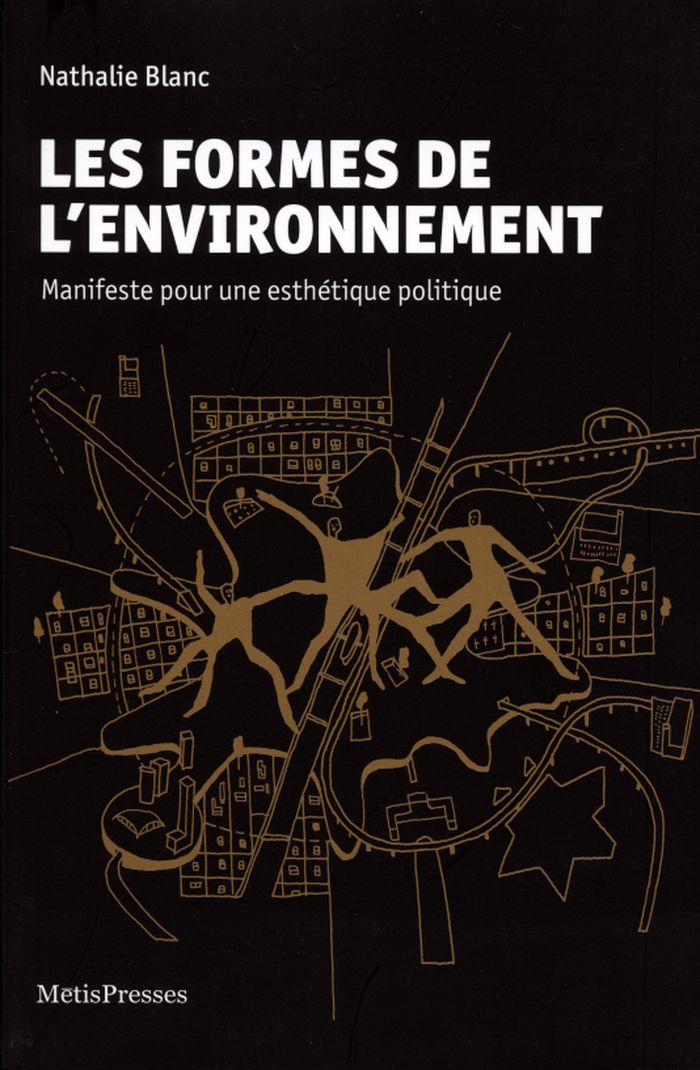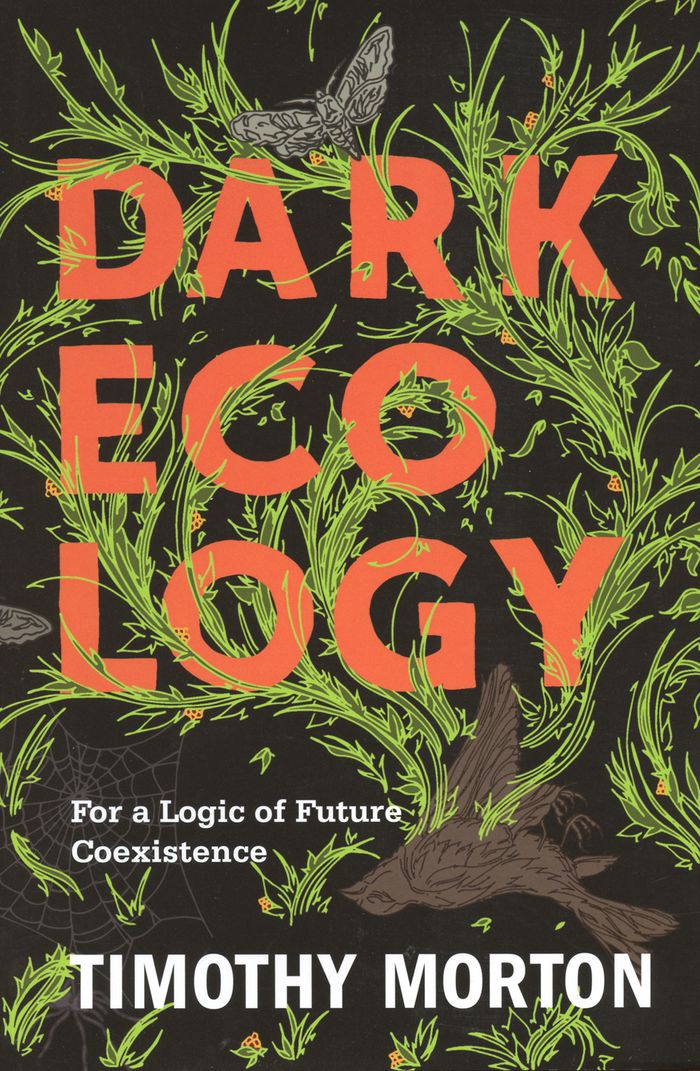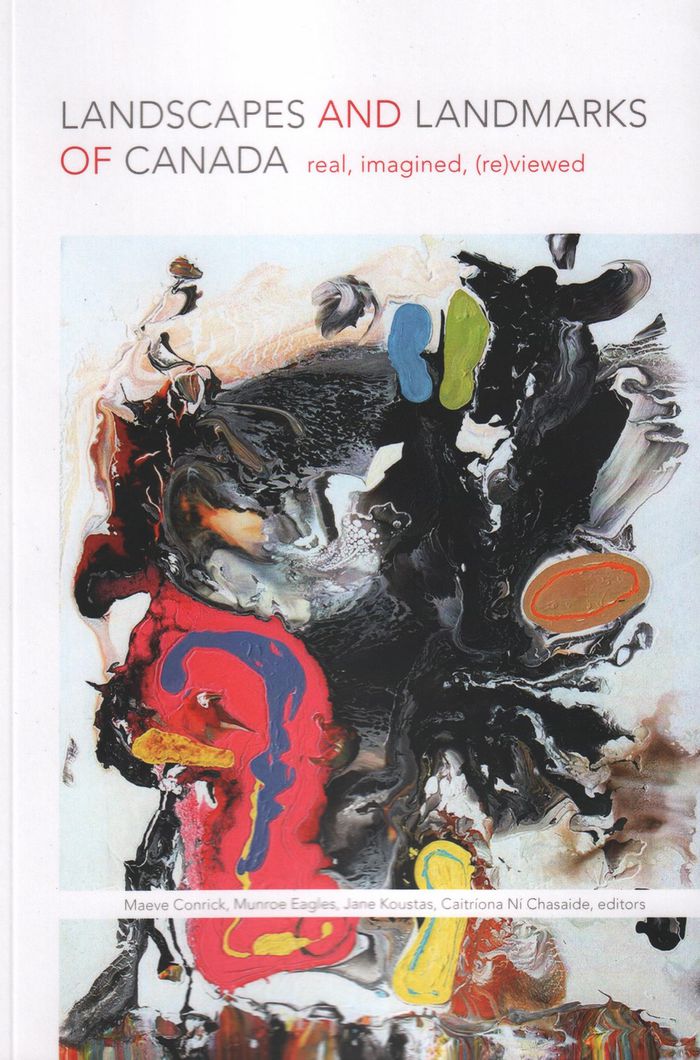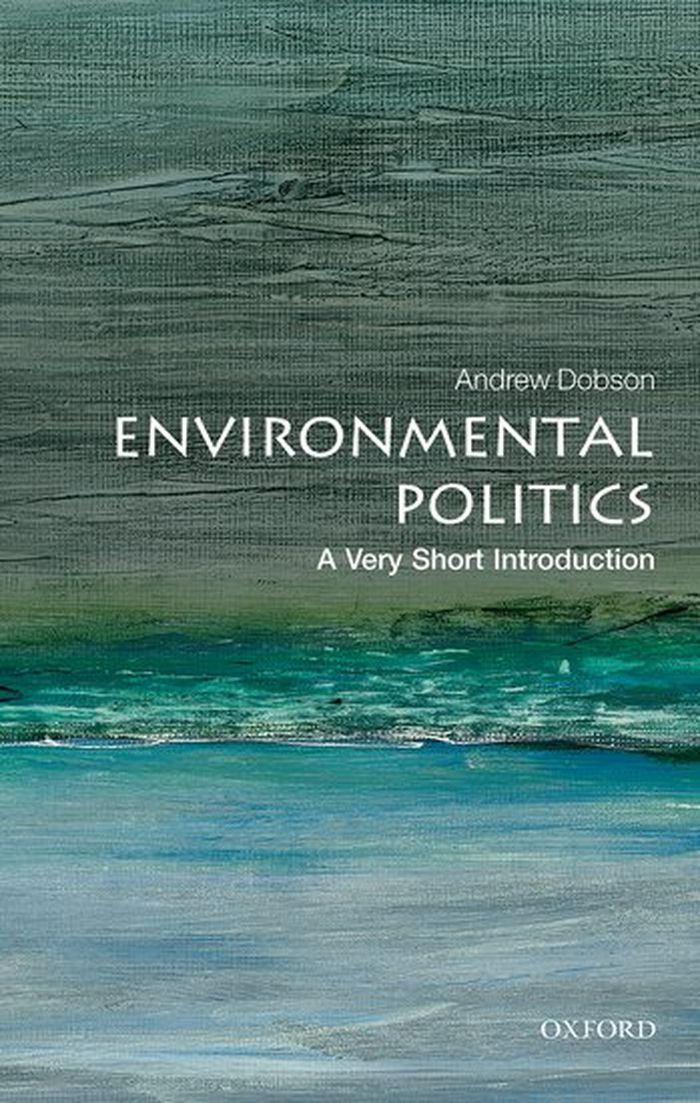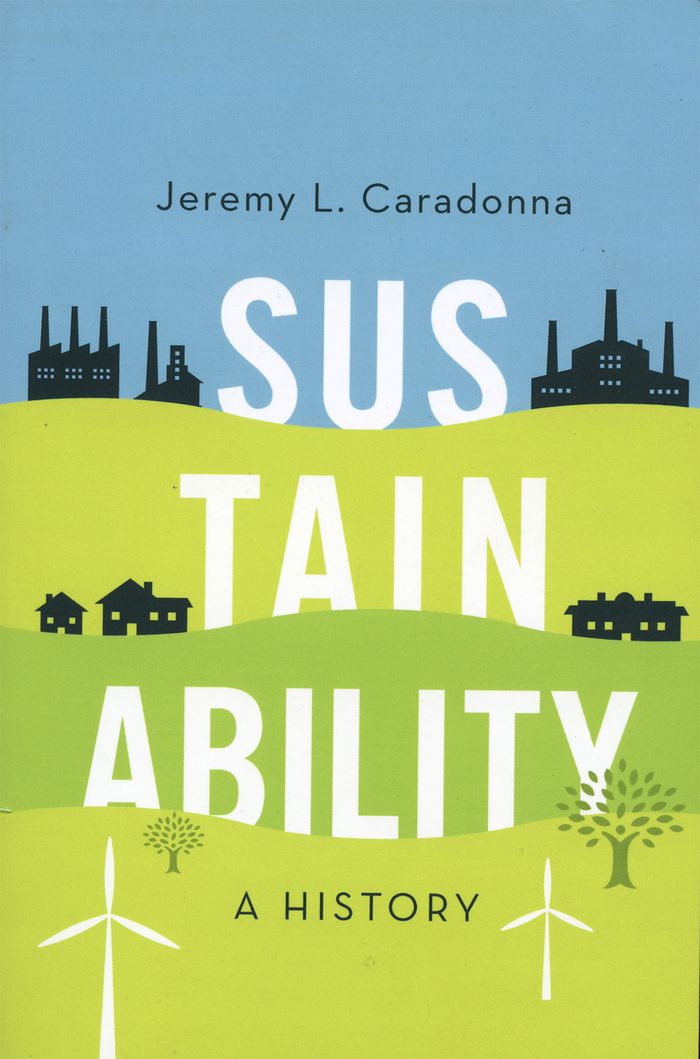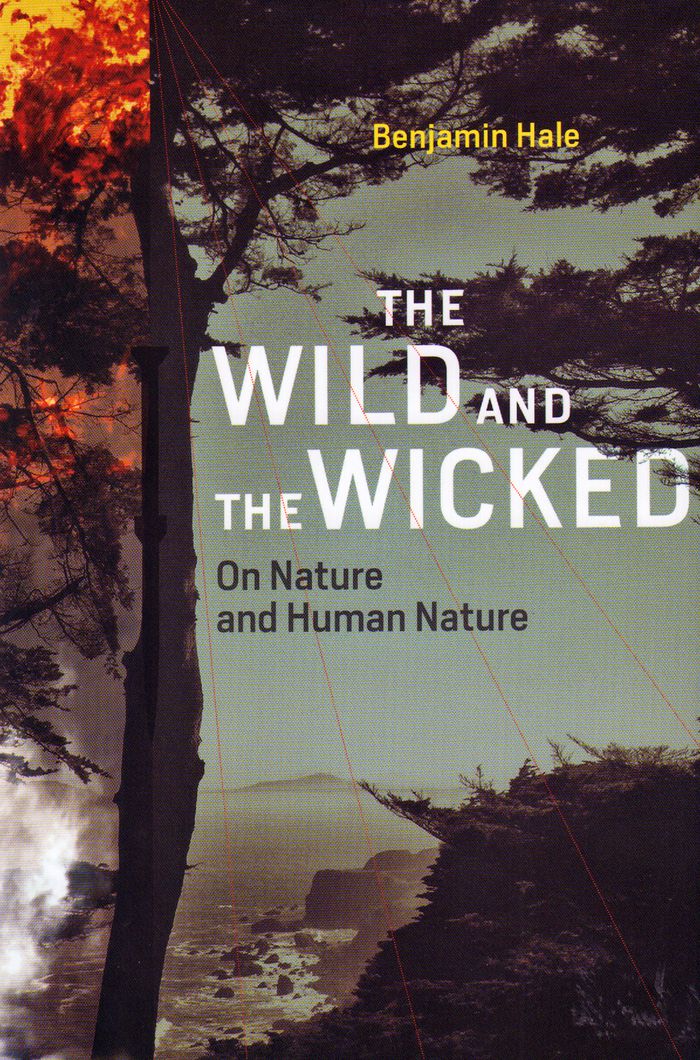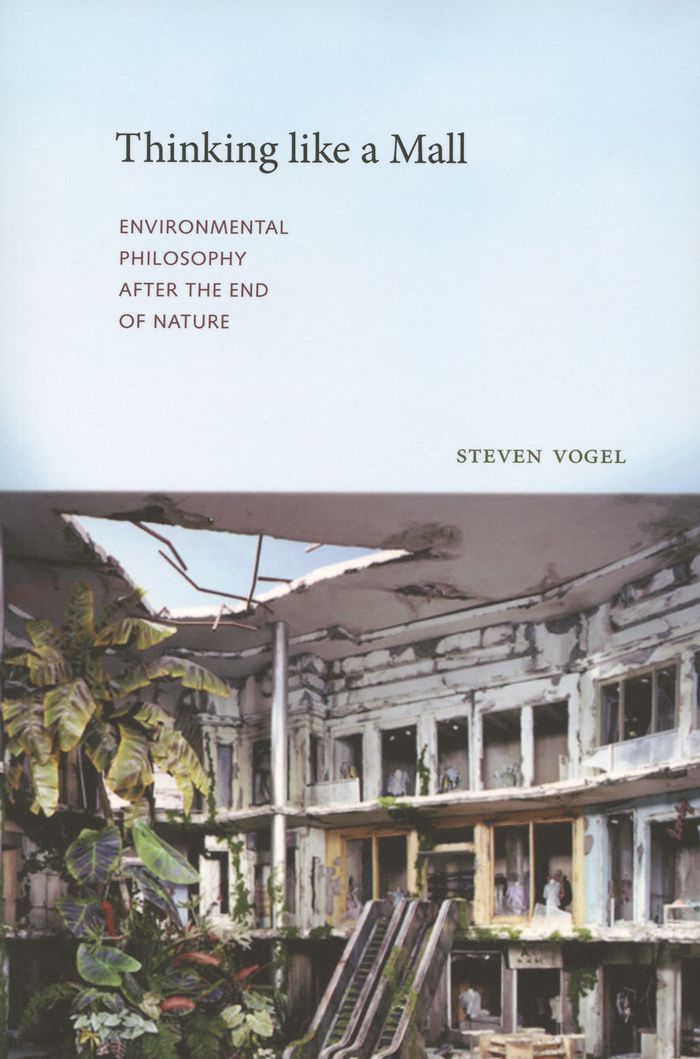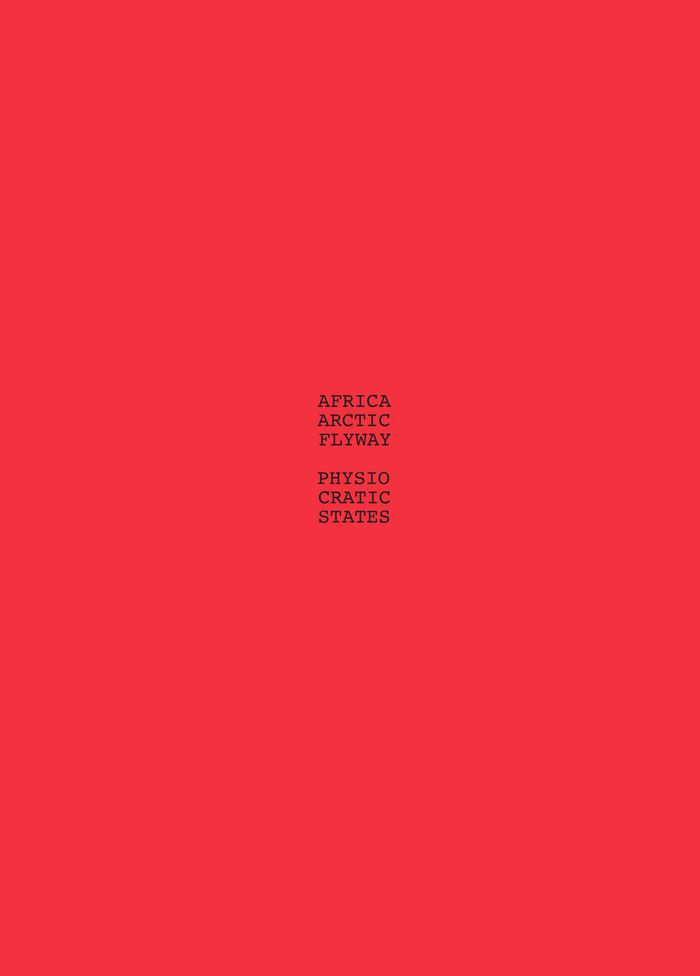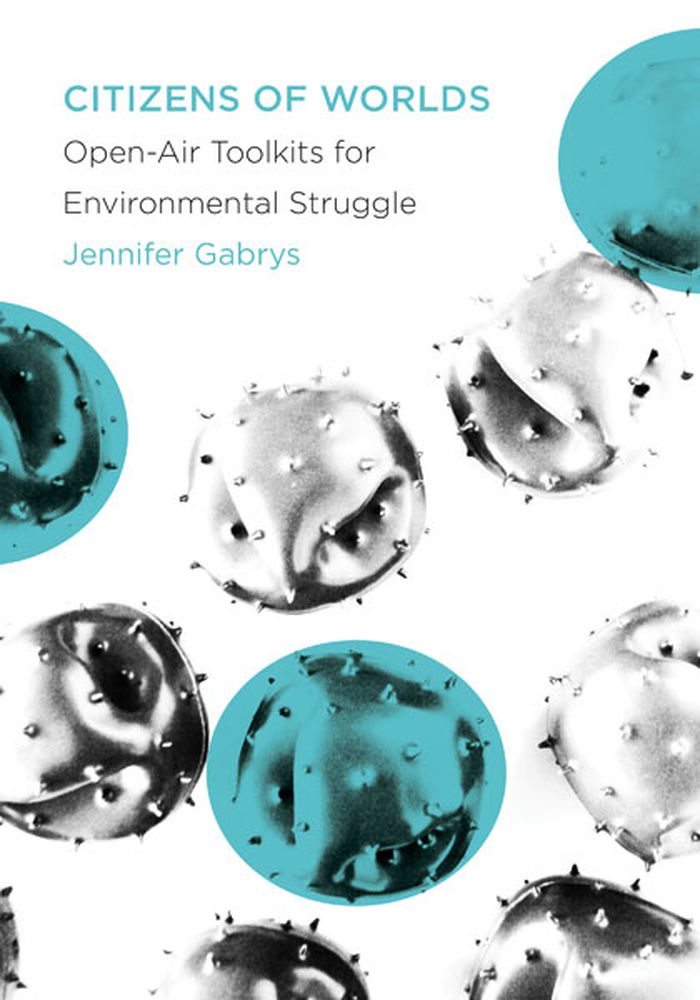$29.95
(disponible en magasin)
Résumé:
La géographe se positionne en contrepoint d'une approche trop gestionnaire et maîtrisée de l'environnement, celle des politiques publiques. Elle propose au contraire une approche fondée sur la notion de forme environnementale, associant esthétique et politique.
Les formes de l'environnement : manifeste pour une esthétique politique
Actions:
Prix:
$29.95
(disponible en magasin)
Résumé:
La géographe se positionne en contrepoint d'une approche trop gestionnaire et maîtrisée de l'environnement, celle des politiques publiques. Elle propose au contraire une approche fondée sur la notion de forme environnementale, associant esthétique et politique.
$35.95
(disponible sur commande)
Résumé:
The logistics of agricultural society resulted in global warming and hardwired dangerous ideas about life-forms into the human mind. Dark ecology puts us in an uncanny position of radical self-knowledge, illuminating our place in the biosphere and our belonging to a species in a sense that is far less obvious than we like to think. Morton explores the logical foundations(...)
Dark ecology : for a logic of future coexistence
Actions:
Prix:
$35.95
(disponible sur commande)
Résumé:
The logistics of agricultural society resulted in global warming and hardwired dangerous ideas about life-forms into the human mind. Dark ecology puts us in an uncanny position of radical self-knowledge, illuminating our place in the biosphere and our belonging to a species in a sense that is far less obvious than we like to think. Morton explores the logical foundations of the ecological crisis, which is suffused with the melancholy and negativity of coexistence yet evolving, as we explore its loop form, into something playful, anarchic, and comedic. His work is a skilled fusion of humanities and scientific scholarship, incorporating the theories and findings of philosophy, anthropology, literature, ecology, biology, and physics. Morton hopes to reestablish our ties to nonhuman beings and to help us rediscover the playfulness and joy that can brighten the dark, strange loop we traverse.
$34.99
(disponible sur commande)
Résumé:
The image of the “land” is an ongoing trope in conceptions of Canada—from the national anthem and the flag to the symbols on coins—the land and nature remain linked to the Canadian sense of belonging and to the image of the nation abroad. Linguistic landscapes reflect the multi-faceted identities and cultural richness of the nations. Earlier portrayals of the land focused(...)
avril 2017
Landscapes & landmarks of Canada: real, imagined, (re)viewed
Actions:
Prix:
$34.99
(disponible sur commande)
Résumé:
The image of the “land” is an ongoing trope in conceptions of Canada—from the national anthem and the flag to the symbols on coins—the land and nature remain linked to the Canadian sense of belonging and to the image of the nation abroad. Linguistic landscapes reflect the multi-faceted identities and cultural richness of the nations. Earlier portrayals of the land focused on unspoiled landscape, depicted in the paintings of the Group of Seven, for example. Contemporary notions of identity, belonging, and citizenship are established, contested, and legitimized within sites and institutions of public culture, heritage, and representation that reflect integration with the land, transforming landscape into landmarks. This collection includes essays by Canadian and international scholars whose engagement with the theme stems from their disciplinary perspectives as well as from their personal and professional experience—rooted, at least partially, in their own sense of national identity and in their relationship to Canada.
$11.95
(disponible sur commande)
Résumé:
In this 'Very Short Introduction' Andrew Dobson offers a lively and comprehensive commentary on the many facets of environmental politics today. Looking towards the future, he asks whether environmental politics will be comfortably accommodated by mainstream politics, or whether the advent of the Anthropocene - a whole new geological epoch driven by human impact on the(...)
Environmental politics: a very short introduction
Actions:
Prix:
$11.95
(disponible sur commande)
Résumé:
In this 'Very Short Introduction' Andrew Dobson offers a lively and comprehensive commentary on the many facets of environmental politics today. Looking towards the future, he asks whether environmental politics will be comfortably accommodated by mainstream politics, or whether the advent of the Anthropocene - a whole new geological epoch driven by human impact on the environment - will herald a break with the politics of growth that has dominated social life since the beginning of the Industrial Revolution.
Sustainability: a history
$20.95
(disponible sur commande)
Résumé:
The word is nearly ubiquitous: at the grocery store we shop for "sustainable foods" that were produced from "sustainable agriculture"; groups ranging from small advocacy organizations to city and state governments to the United Nations tout "sustainable development" as a strategy for local and global stability; and woe betide the city-dweller who doesn't aim for a(...)
octobre 2016
Sustainability: a history
Actions:
Prix:
$20.95
(disponible sur commande)
Résumé:
The word is nearly ubiquitous: at the grocery store we shop for "sustainable foods" that were produced from "sustainable agriculture"; groups ranging from small advocacy organizations to city and state governments to the United Nations tout "sustainable development" as a strategy for local and global stability; and woe betide the city-dweller who doesn't aim for a "sustainable lifestyle." Seeming to have come out of nowhere to dominate the discussion-from permaculture to renewable energy to the local food movement-the ideas that underlie and define sustainability can be traced back several centuries.
$40.95
(disponible sur commande)
Résumé:
For years, environmentalists have insisted that nature is fundamentally good. In this publication, Benjamin Hale adopts the opposite position — that much of the time nature can be bad — in order to show that even if nature is cruel, we still need to be environmentally conscientious. Hale argues that environmentalists needn’t feel compelled to defend the value of nature,(...)
The wild and the wicked: on nature and human nature
Actions:
Prix:
$40.95
(disponible sur commande)
Résumé:
For years, environmentalists have insisted that nature is fundamentally good. In this publication, Benjamin Hale adopts the opposite position — that much of the time nature can be bad — in order to show that even if nature is cruel, we still need to be environmentally conscientious. Hale argues that environmentalists needn’t feel compelled to defend the value of nature, or even to adopt the attitudes of tree-hugging nature lovers. We can acknowledge nature’s indifference and periodic hostility. Deftly weaving anecdote and philosophy, he shows that we don’t need to love nature to be green. What really ought to be driving our environmentalism is our humanity, not nature’s value.
Whole earth field guide
$46.95
(disponible sur commande)
Résumé:
The Whole Earth Catalog was a cultural touchstone of the 1960s and 1970s. Between 1968 and 1971, almost two million copies of its various editions were sold, and not just to commune-dwellers and hippies. Millions of mainstream readers turned to the Whole Earth Catalog for practical advice and intellectual stimulation, finding everything from a review of Buckminster Fuller(...)
octobre 2016
Whole earth field guide
Actions:
Prix:
$46.95
(disponible sur commande)
Résumé:
The Whole Earth Catalog was a cultural touchstone of the 1960s and 1970s. Between 1968 and 1971, almost two million copies of its various editions were sold, and not just to commune-dwellers and hippies. Millions of mainstream readers turned to the Whole Earth Catalog for practical advice and intellectual stimulation, finding everything from a review of Buckminster Fuller to recommendations for juicers. This book offers selections from eighty texts from the nearly 1,000 items of "suggested reading" in the Last Whole Earth Catalog. Illustrated and meticulously documented, this fascinating selection of texts cited as 'suggested reading' in the Whole Earth Catalog gives us a fresh, new look at this bible of a generation. Wonderful juxtapositions abound: Buckminster Fuller and Wendell Berry; Timothy Leary and Lao-Tzu; Thoreau and Marshall McLuhan; the Boston Women's Health Collective and Norbert Wiener; Nicholas Negroponte and Kakuzo Okakura; and Margaret Mead and James Baldwin (their A Rap on Race). At once libertarian and communitarian, practical and mystical, scientific and hands-on, Whole Earth Field Guide reveals the astonishing energy and spirit that motivated thousands of young people to challenge the status quo and to grapple, with remarkable prescience, with issues such as ecology and information technology that still confront us today.
$35.95
(disponible sur commande)
Résumé:
Environmentalism, in theory and practice, is concerned with protecting nature. But if we have now reached "the end of nature", as Bill McKibben and other environmental thinkers have declared, what is there left to protect? In Thinking like a Mall, Steven Vogel argues that environmental thinking would be better off if it dropped the concept of “nature” altogether and spoke(...)
Thinking like a mall: environmental philosophy after the end of nature
Actions:
Prix:
$35.95
(disponible sur commande)
Résumé:
Environmentalism, in theory and practice, is concerned with protecting nature. But if we have now reached "the end of nature", as Bill McKibben and other environmental thinkers have declared, what is there left to protect? In Thinking like a Mall, Steven Vogel argues that environmental thinking would be better off if it dropped the concept of “nature” altogether and spoke instead of the “environment”—that is, the world that actually surrounds us, which is always a built world, the only one that we inhabit. We need to think not so much like a mountain (as Aldo Leopold urged) as like a mall. Shopping malls, too, are part of the environment and deserve as much serious consideration from environmental thinkers as do mountains.
$51.00
(disponible sur commande)
Résumé:
''Africa-Arctic Flyway: Physiocratic states'' gathers documents of Peter Fend's efforts through Ocean Earth for a planet organized according to hydrology—water basins—rather than national and colonial borders. It lays out tools and technologies derived from art, architecture, and science to replace fossil fuels, dams, nuclear industry, and industrial farming. The ensuing(...)
Africa-Arctic Flyway: Physiocratic states
Actions:
Prix:
$51.00
(disponible sur commande)
Résumé:
''Africa-Arctic Flyway: Physiocratic states'' gathers documents of Peter Fend's efforts through Ocean Earth for a planet organized according to hydrology—water basins—rather than national and colonial borders. It lays out tools and technologies derived from art, architecture, and science to replace fossil fuels, dams, nuclear industry, and industrial farming. The ensuing proposal for governance builds on what is identified as the first school of economic thought: physiocracy. Here, via satellite-aided eco-taxation, governance pursues an increase in the numbers of fish, marine mammals, migratory birds, and insects. For instance, ideas from Earth art are applied to restoring wetlands and flyways in three swaths—the Americas, East Asia, and Eurafrica—converging on the Arctic. This book focuses on the Eurafrica flyway and surveys four decades of work. It asks, ''How do we go from visual art to reality?'' Fend answers: ''Through architecture.''
$41.99
(disponible sur commande)
Résumé:
Modern environments are awash with pollutants churning through the air, from toxic gases and intensifying carbon to carcinogenic particles and novel viruses. The effects on our bodies and our planet are perilous. This is the first thorough study of the increasingly widespread use of digital technologies to monitor and respond to air pollution. It presents practice-based(...)
novembre 2022
Citizens of worlds: Open-air toolkits for environmental struggle
Actions:
Prix:
$41.99
(disponible sur commande)
Résumé:
Modern environments are awash with pollutants churning through the air, from toxic gases and intensifying carbon to carcinogenic particles and novel viruses. The effects on our bodies and our planet are perilous. This is the first thorough study of the increasingly widespread use of digital technologies to monitor and respond to air pollution. It presents practice-based research on working with communities and making sensor toolkits to detect pollution while examining the political subjects, relations, and worlds these technologies generate. Spanning three project areas, this study describes collaborations to monitor air pollution from fracking infrastructure, to document emissions in urban environments, and to create air-quality gardens. As these projects show, how people respond to, care for, and struggle to transform environmental conditions informs the political subjects and collectives they become as they strive for more breathable worlds.
